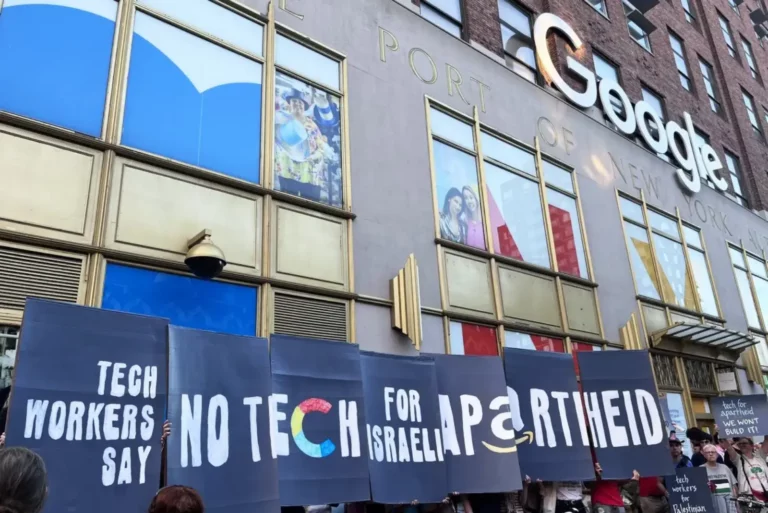Tensions flared at Google this week as the company fired 28 employees following a series of protests against its business dealings with Israel. The employees, affiliated with the activist group No Tech For Apartheid, staged sit-ins at Google offices in New York and California, demanding the tech giant withdraw from a $1.2 billion cloud computing project with the Israeli government, codenamed Project Nimbus.
According to Google, the protests devolved into disruptive territory. Employees allegedly occupied office spaces, caused property damage, and hindered the work of their colleagues. In a company-wide memo, Google vice president Chris Rackow condemned the actions as “unacceptable” and a clear violation of the company’s code of conduct. He added that investigations resulted in the termination of 28 employees who were identified as being directly involved in the protests.
The fired workers, through No Tech For Apartheid spokesperson Jane Chung, vehemently criticized Google’s decision, labeling it retaliation and a prioritization of profits over human rights. They accused Google of being complicit in violence against Palestinians through its involvement with Project Nimbus. The group claims Google’s technology is being used against Palestinians in Gaza, a claim both the Israeli government and Google itself have firmly denied.
The protests specifically targeted Google Cloud CEO Thomas Kurian. Livestreams posted by No Tech For Apartheid documented demonstrators occupying Kurian’s office in Sunnyvale and writing demands on his whiteboard. This escalation prompted intervention from law enforcement. Social media posts by the activist group captured the moment some employees received final warnings and were subsequently arrested for trespassing. Google, however, maintains that the majority of those arrested were not Google employees but external activists affiliated with the No Tech For Apartheid movement. The group refutes this claim, insisting its members were Google employees exercising their right to protest.
The firings add another layer of controversy to Google’s already strained relationship with Israel. Last month, the company fired a software engineer for publicly criticizing an Israeli-based Google executive during a tech conference in New York City. Critics argue that these recent actions reveal Google’s true priorities – profits over employee activism and social responsibility. Google, on the other hand, maintains it upholds its policies and protects its workplace environment from disruptive behavior.
The full extent of the arrests remains unclear. New York police confirm arresting four individuals for trespassing, while Sunnyvale authorities report five arrests for the same offense. It’s unknown if all nine arrested individuals were among those fired by Google.
This incident highlights the complex and often contentious nature of corporate social responsibility, particularly when it intersects with geopolitical issues. While Google maintains its commitment to employee rights, the firings raise critical questions about employee activism and the boundaries of protest within the workplace. Furthermore, the incident reignites the debate about the appropriate role of tech companies in geopolitical conflicts. With the increasing influence of Silicon Valley giants, the question of how these companies balance their business interests with ethical considerations is likely to remain a topic of heated discussion for years to come.



